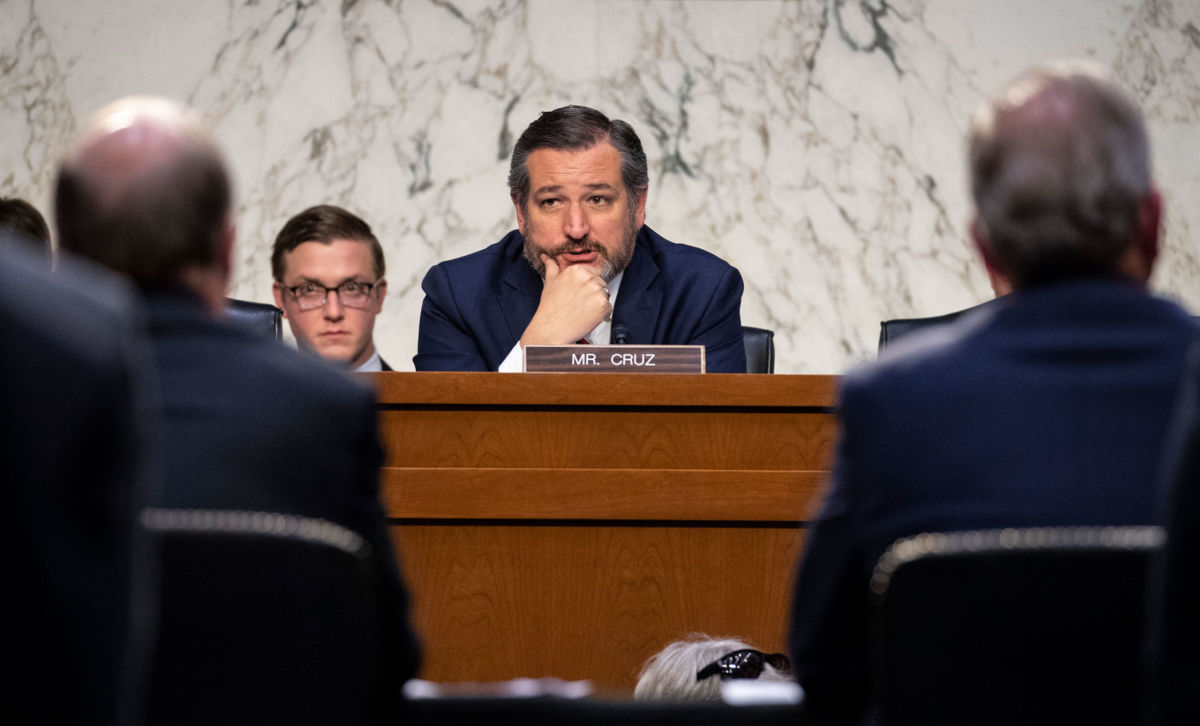Honest, paywall-free news is rare. Please support our boldly independent journalism with a donation of any size.
Sen. Ted Cruz (R-Texas) has sued the FEC in an attempt to overturn rules that limit how much money a candidate can raise to reimburse themselves for campaign loans, Buzzfeed News reported Monday.
Current rules allow candidates to raise up to $250,000 from donors to repay personal loans to their own campaign. Cruz loaned his Senate campaign $260,000 in 2018, just over the repayment limit, and argues that the FEC rules restrict those who “exercise their constitutional right to express their political views.”
The lawsuit, filed Monday in federal court in Washington, D.C., seeks to scrap a section of the Bipartisan Campaign Reform Act (BCRA) intended to limit the influence of wealthy candidates. If FEC limits were reversed, a candidate would be free to raise unlimited funds to repay past debts, potentially leading to new campaign finance strategies that could benefit wealthy candidates.
Paul S. Ryan, vice president of policy and litigation at Common Cause, told the Center for Responsive Politics the rules would open up campaigns to further special interest influence, calling post-election personal loan repayments “one of the most corrupting forms of money in politics.”
“The donor that’s trying to buy access and influence, they would much rather buy that access from a current office holder than a candidate who might in the future become an office holder,” Ryan said. “You’re a sure bet once you’ve been elected … you’re not a sure bet heading into the election.”
Brendan Fischer, director of federal reform at Campaign Legal Center, said these contributions “effectively go straight into” the candidate’s pockets. He also noted that Cruz took out a margin loan from Goldman Sachs before loaning money to his own campaign.
“So Ted Cruz is advocating for a world where candidates can get Wall Street banks to finance their run for office, and then after winning election, those candidates can tap lobbyists and deep-pocketed special interests to pay back those Wall Street loans,” Fischer said.
That’s not all. Changes to the law could bolster a new strategy of using personal loan debt to the candidate’s advantage.
In July 2018, the Daily Beast reported that Republican Senate candidate Matt Rosendale used personal loan debt from his 2014 House run as a way to effectively skirt contribution limits. Rosendale began raising money to repay the debt in 2018, but any contributions to that effort did not count toward contribution limits for the 2018 cycle.
Eight of nine wealthy donors that helped pay off the debt had already given the maximum $5,400 to Rosendale’s 2018 campaign. After receiving the funds, Rosendale loaned his 2018 campaign more money, effectively creating a cycle of loans and repayments that bypasses traditional contribution limits.
“It allows a candidate to go to hit up a single donor for more than the actual currently applicable campaign contribution limits by asking them to also make contributions to their prior election cycles for loan forgiveness,” Ryan said.
Sen. Mike Braun (R-Ind.) employed a similar tactic in 2018, taking contributions for the purpose of paying down his personal campaign debts from the Republican primary. After paying down those debts, Braun loaned his general election campaign the exact same sums, effectively allowing his donors to bypass contribution limits.
Ryan argued the restrictions are constitutional, noting that under current rules, Cruz could spend as much of his own money as he wants — the law simply restricts how much he can be reimbursed by donors.
Still, Cruz’s lawsuit notes that the Supreme Court has struck down parts of the BCRA before, referring to the 2008 decision that struck down the Millionaires’ Amendment and the 2010 Citizens United decision that removed a prohibition on outside spending from corporations.
Press freedom is under attack
As Trump cracks down on political speech, independent media is increasingly necessary.
Truthout produces reporting you won’t see in the mainstream: journalism from the frontlines of global conflict, interviews with grassroots movement leaders, high-quality legal analysis and more.
Our work is possible thanks to reader support. Help Truthout catalyze change and social justice — make a tax-deductible monthly or one-time donation today.
